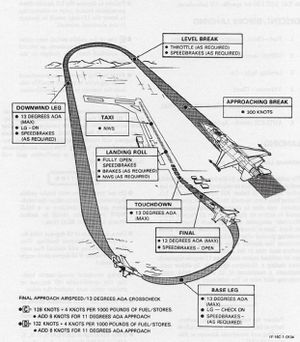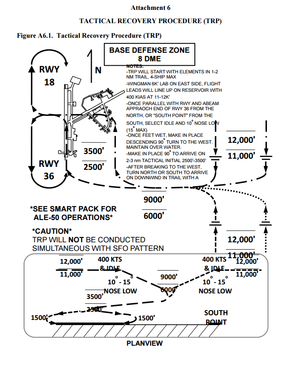Difference between revisions of "Airport operations"
Jump to navigation
Jump to search
| Line 5: | Line 5: | ||
#Fly the tactical recover procedure | #Fly the tactical recover procedure | ||
#QNH vs. QFE | #QNH vs. QFE | ||
| + | |||
| + | =Learning files= | ||
| + | * https://www.dropbox.com/s/6yk0g0zlrgal2ss/UOAF_Landing_Procedures_v1.pdf?dl=0 | ||
=Recoveries= | =Recoveries= | ||
==Overhead break== | ==Overhead break== | ||
| − | + | [[File:overhead_break.jpg|thumb|right|Overhead break]] | |
| + | The military pattern, otherwise known as the overhead break, is the standard for all USAF fighter operations. It looks great on camera, but primarily, it's designed to deconflict and get planes on the ground as soon as possible. | ||
==Tactical recovery procedure (TRP)== | ==Tactical recovery procedure (TRP)== | ||
Revision as of 01:25, 6 March 2017
Contents
Learning objectives
- Enter the pattern
- Fly a circuit
- Fly the overhead break
- Fly the tactical recover procedure
- QNH vs. QFE
Learning files
Recoveries
Overhead break
The military pattern, otherwise known as the overhead break, is the standard for all USAF fighter operations. It looks great on camera, but primarily, it's designed to deconflict and get planes on the ground as soon as possible.
Tactical recovery procedure (TRP)
How to execute a TRP

